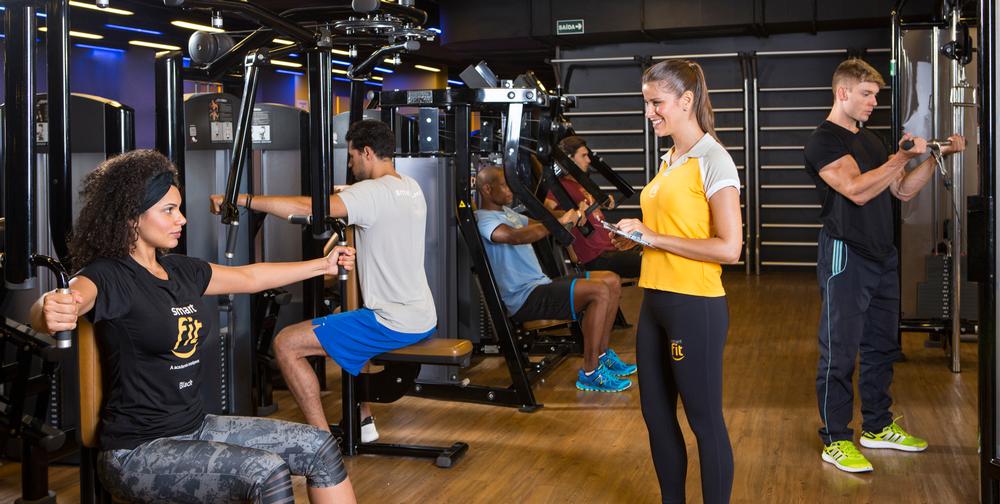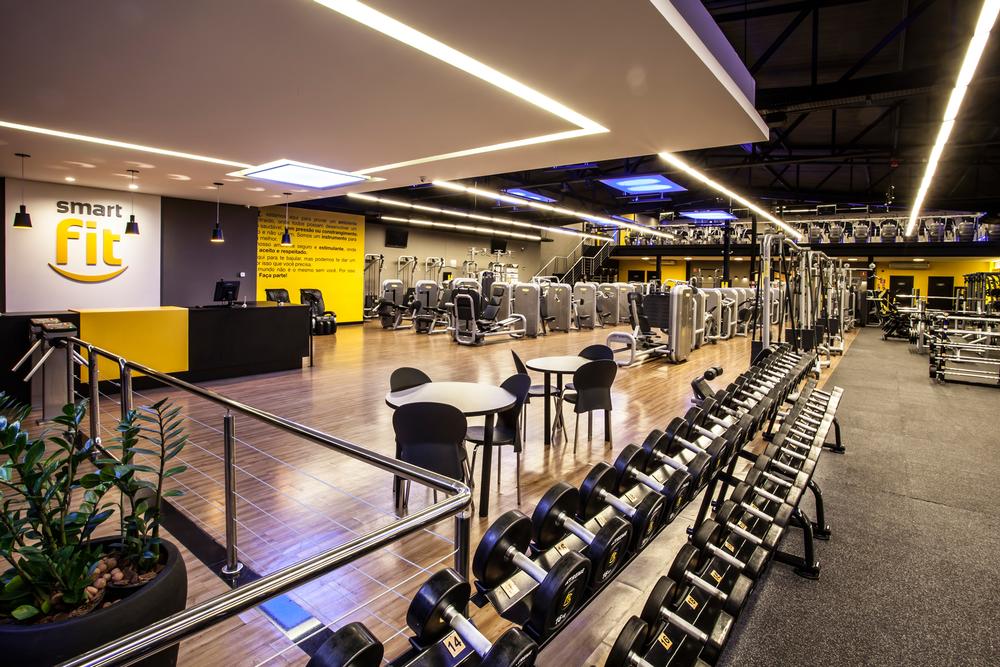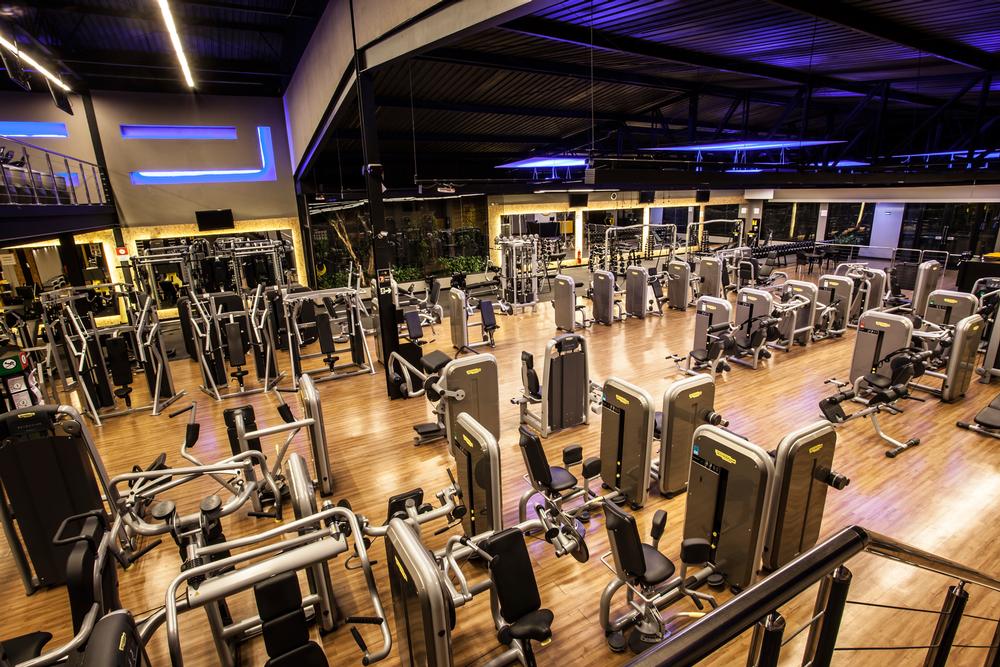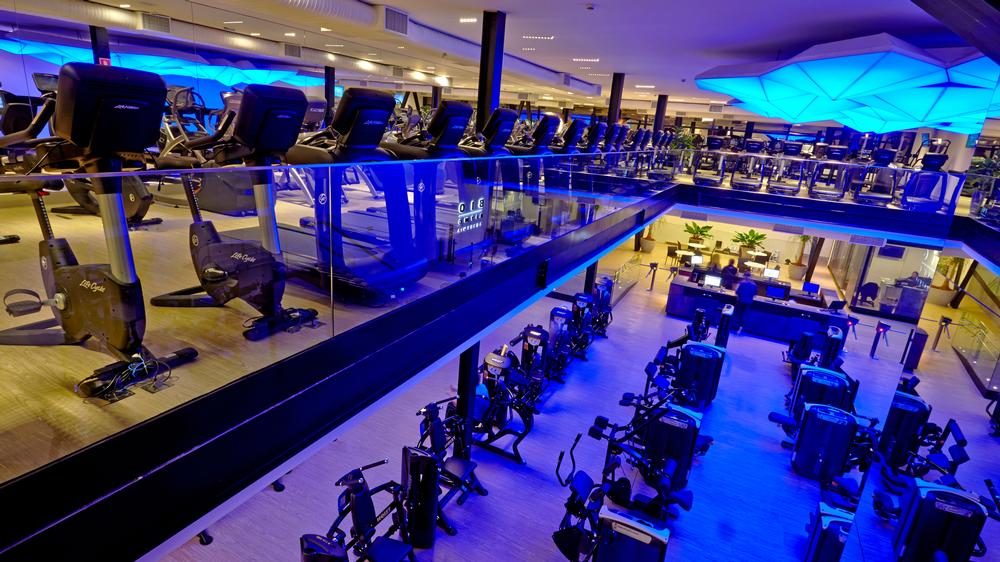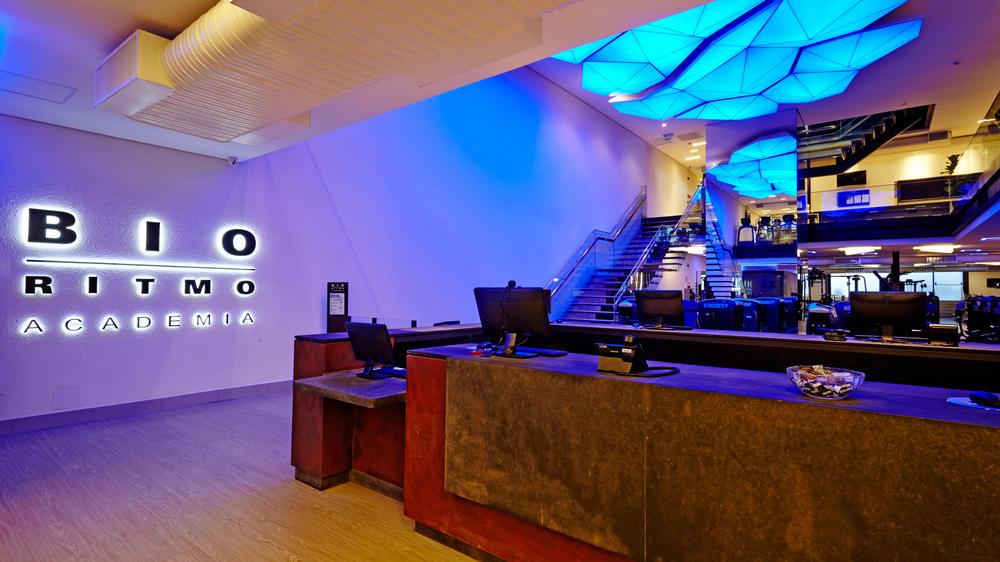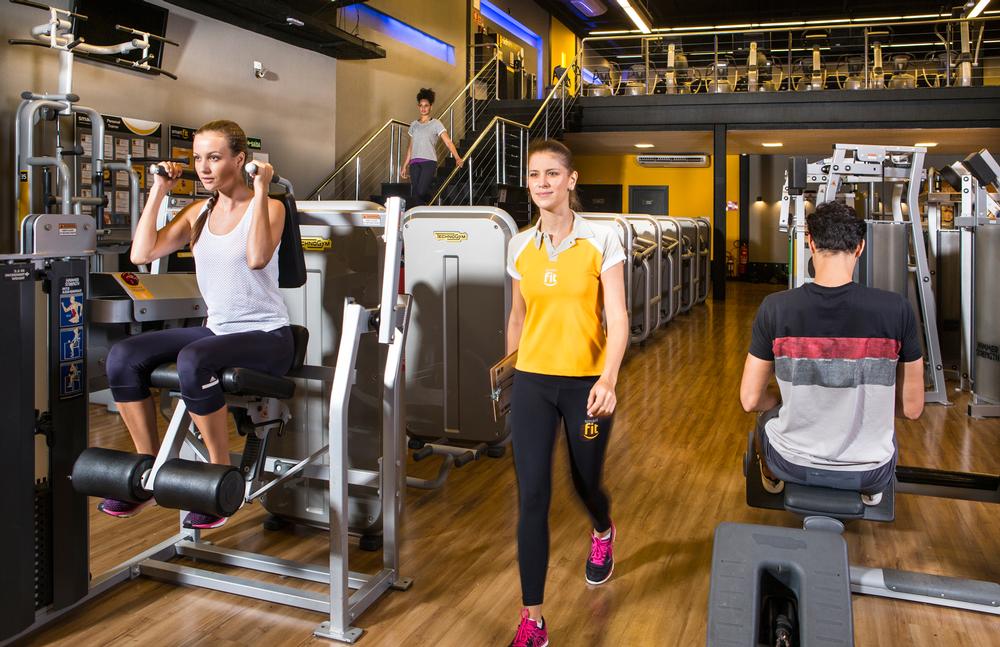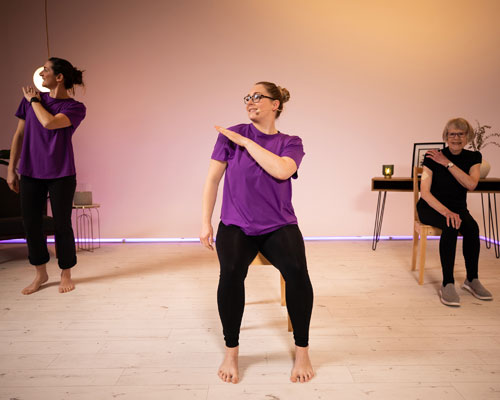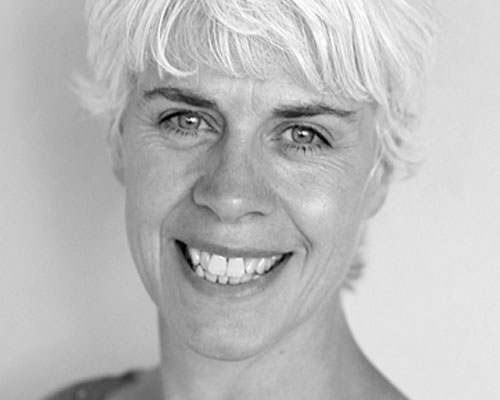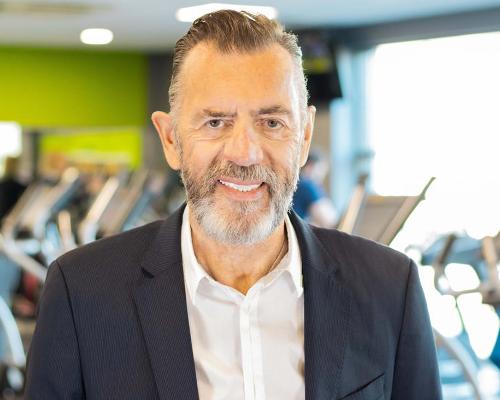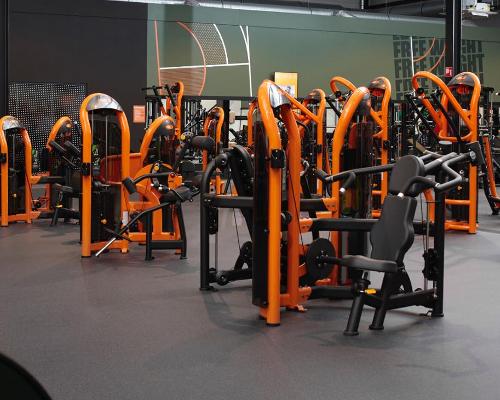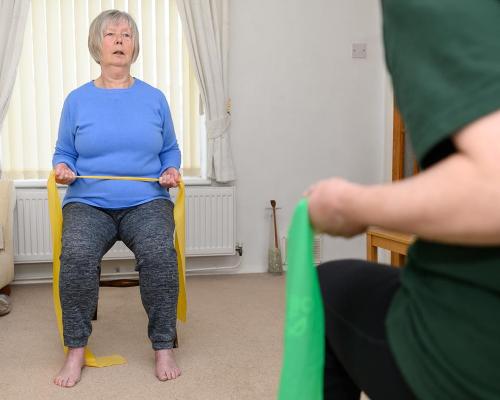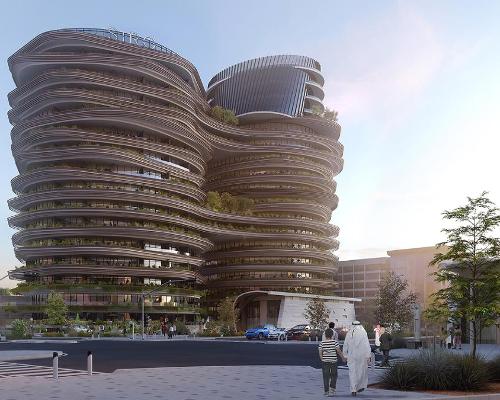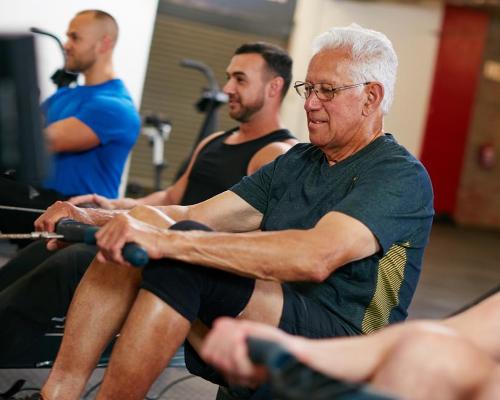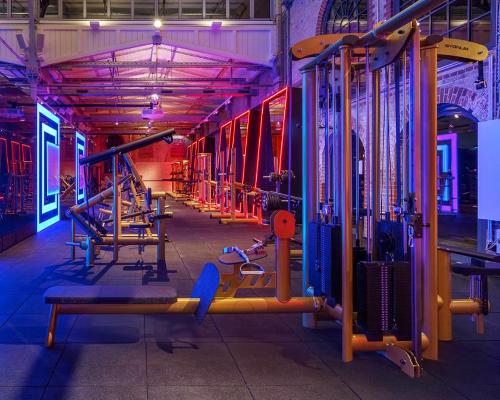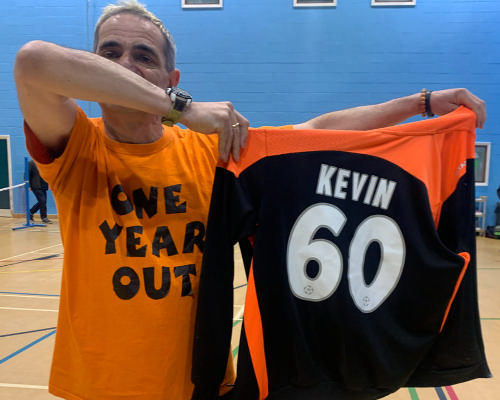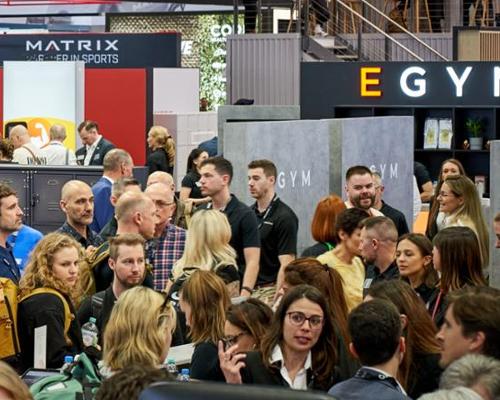features
Interview - Edgard Corona: Edgard Corona
The founder and CEO of BioRitmo and SmartFit talks to Kate Cracknell about cannibalising his own business, handing the reins to his staff and the challenges of operating in Brazil

“If I’m going to lose members to low-cost clubs, I’d rather lose them to my own low-cost clubs than to my competitors,” says Edgard Corona, explaining how, in 2009, he launched low-cost SmartFit into the market alongside the premium operation, BioRitmo, that he’d established in Brazil in 1995.
With this self-cannibalisation strategy in mind, Corona’s philosophy is to offer the very best clubs in both the premium and the low-cost segments of the market, in a bid to ensure his facilities are people’s first and second choices. Whether they then opt for BioRitmo or SmartFit is up to them.
But it’s been a learning curve, as Corona freely admits. Rewind to 1995, when he resigned from his job as a chemical engineer to invest in the first ever BioRitmo club.
“We did everything wrong,” he says. “The club lost money for seven or eight years until we made the space bigger and offered more parking.”
But come 1997, and the opening of the second BioRitmo in Paulista, the recipe had already changed. “I’d visited London and had been inspired by the design and the experience you got in the restaurants over there.
“I decided I didn’t want my clubs to feel like health clubs – I wanted them to feel like you were walking into one of those restaurants. Our Paulista club changed the whole market – it was very clean, with a great colour scheme and a strong focus on lighting.”
Confronting costs
He continues: “But even then, it was hard for us to grow because of costs. Interest and inflation rates in Brazil were very high – we had to change our prices every month – and the import tax on goods coming into Brazil meant we were paying around two and a half times more for gym equipment than US operators. A treadmill would cost us US$25,000 – more expensive than a car – so we didn’t have much kit in our clubs.
“In fact, that premium on fitness equipment is still the case – it remains one of our big challenges.”
Corona realised more streamlining was needed and, attending his first IHRSA event in 2001, he hired one of the expert presenters to refine his sales process. The facility mix was also reviewed, with the swimming pools removed to make way for two group exercise studios in every club. “It’s hard to manage too many elements well,” he explains. “I wanted a simpler model as the blueprint going forward.”
Within this, however, Corona has continued to experiment. At the Higenopolis club in São Paolo for example, which opened in 2005, he installed theatre-style lighting to overcome the challenge of an interior location in a shopping centre: during the day, the lighting makes it look like daytime, switching to sunset and then night-time at the appropriate hour.
And in the last year there’s been a significant rethink in the BioRitmo club layout to enhance the user experience, with gym floors split into three distinct zones to cater for different types of member. “We’ve created three clubs within a club: one area for those who just use machines to exercise, mainly beginners and middle-aged to older users; the central area targeting people in their 20s through to early 40s, with a more competitive feeling and a focus on functional and small group training; and the other end exclusively for heavier free weights and personal training.
“We also have different types and ages of instructor on the gym floor at different times of the day, depending on the profile of the members in the club.”
A challenging market
But it’s not all been plain sailing. In 2007, cashflow was “very tricky – I thought the business might fold”. And operating in Brazil doesn’t get any easier today. “There’s a national water shortage, so we’re having to drill 36 wells this year and buy trucks to move water from one site to another. If people can’t shower at our clubs, then they’ll have to close,” explains Corona.
“The cost of water is likely to go up 35 per cent this year – assuming there is any – and the cost of power up 55 per cent. Meanwhile the Brazilian economy will drop 2 per cent and inflation is sitting at about 8 per cent. People have less disposable income.”
The company will therefore focus
on growing its low-cost brand – although even then, given the challenging conditions, growth will be slower than in previous years.
“Last year we opened 52 SmartFit clubs in Brazil, but that won’t be the case this year. We have to base all our plans on zero growth in Brazil,” acknowledges Corona. “The value of the Brazilian Real is also decreasing against foreign currency, which is another big challenge as all our equipment and maintenance comes from the US or Europe. We’re currently buying more from Europe, because the Euro is also struggling. And of course a lot of our resources are going towards tackling the water shortage at the moment.”
Cost versus salary
He continues: “Another reason we’re focusing on SmartFit is that the premium end of the market is already saturated. In spite of the tough economic conditions in Brazil, and the fact that people in the US earn at least three times more than people in Brazil, there are more high-end clubs in São Paolo – where the majority of our BioRitmo clubs are – than in New York City. So we’ll open more high-end clubs, but probably only one or two a year.
“Meanwhile, only about 4 per cent of the Brazilian population holds a gym membership at the moment, so there’s scope for growth if we can educate people to look beyond aesthetics to the health benefits – although that in itself will be a challenge. However, I don’t think we’ll get much past 6 per cent, because the cost of building and operating clubs is such that US$20 really is the lowest you can charge – that gives you just a small profit – and lots of people can’t afford that.
“In the US, people’s salaries are three times higher and they pay US$10 a month for a low-cost club. In Brazil they pay US$20, meaning gym membership is the equivalent of six times more expensive. So even budget clubs won’t hugely grow the market.
“We may even need to increase our price slightly – to around US$23 a month – for the new clubs we’re building, because equipment is now 60 per cent more expensive due to the exchange rate.”
Growing SmartFit
Nevertheless, if growth does come, it’s likely to be through low-cost expansion. So what is the SmartFit model? “It’s an experience,” says Corona. “The way we’ve approached the architecture, the lighting, the choice of software and equipment… it isn’t like a normal low-cost club. The idea is that, if low-cost competition arrives, they won’t actually be able to compete because ours feels like a high-end club – but charging only US$20 a month.
“In fact, a lot of high-end gyms are losing members to SmartFit, including BioRitmo. That’s OK though – I’m happy to have really great low-cost clubs so we don’t lose our BioRitmo members to other low-cost operators.
“I actually don’t want people to be able to see much difference between SmartFit and BioRitmo.”
He continues: “There are instructors on-hand at SmartFit in case members have any questions, but the whole club has been set up to be self-explanatory. There are three rows of equipment – the front row is for weight loss, the second for endurance training and the back row for muscle building. Crossing these to effectively form a grid, lines of equipment run from the front to the back of the gym floor by body part: arms, back, legs, abs and so on.
“So if you want to build muscle in your arms, you immediately know exactly which piece of kit to go to. There’s then a video when you get there to show you the exercises you can do on that piece of equipment.”
There are now 176 SmartFit clubs in Brazil, with another 20 planned by the end of the year, and it’s proving to be an appealing model across other South American countries too.
“We’ve created 50/50 joint ventures with local partners to expand into Mexico and Chile – SportCity in Mexico in 2012, and O2 in Chile at the end of 2013, which are both high-end operators that wanted a low-cost brand. We have 47 clubs in Mexico with another 17 to come this year, and four clubs in Chile with another in the pipeline. I’d also like to go into Peru, where I think we could open around 30 clubs.
“Over time I think we can grow SmartFit to 130–140 clubs in Mexico and to 300 in Brazil – so maybe a total of 450–500 across all markets – but that’s really just a guesstimate, because our competitive advantage is inevitably just temporary.”
Competing with yourself
Corona concludes: “I’m now looking at the possibility of launching a microgym format. As Steve Jobs said, it’s not about the next thing you do but what you’ll do three steps down the line. I want to think about what formats I can create that will compete with my existing clubs.
“I don’t have any issue with challenging my own business models and cannibalising myself. I genuinely believe that, if my business is hurting, it’s simply because I’m not giving members what they want.
“The future is uncertain, especially with all the technology that’s coming our way, but it’s full of opportunities. I want to prepare and empower the young people in my organisation to be creative and come up with new ideas. My role is to step back and try not to disturb them – simply to help them make the changes once they’ve come up with the ideas – because they understand technology far better than I do.”
BioRitmo
Established: First club opened 1995
Membership fee: US$100 a month
Club size: Typically 1,600sq m
Offering: Gym and group exercise
Member profile: Diverse age range and fitness experience
Number of clubs: 28
Locations: Brazil, predominantly in São Paolo
SmartFit
Established: First club opened 2009
Membership fee: US$20 a month
Club size: 1,000–1,500sq m
Offering: CV and resistance equipment
Member profile: Younger, exercise-savvy members
Number of clubs: 227
Locations: Brazil, Mexico and Chile
Empowering staff
“In 2003, I was working crazy hours and I went on a training session that changed the way I saw the world and managed my company,” says Edgard Corona. “I realised I was doing a lot wrong.”
He adds: “I learnt that every human being needs power and purpose and participation, so I inverted the pyramid at my company and empowered the staff – the people who are in front of the members every day – to run the company.
“We monitor member satisfaction through NPS every day, although we only ask each member twice a year. They receive an email within five hours of leaving the club, and if they score us less than six out of 10, the manager must call them, apologise and look at how to address any problems.
“We also have a Gallup process with questions for customers and staff, to measure how well the manager is taking care of the team, and how satisfied the members are.
“The whole team then gets involved in finding and implementing solutions to the problems they have identified.”
Location, location, location
“It’s hard finding good locations for clubs in the old cities of Brazil,” says Corona. “The way the buildings have been designed, you often have to split clubs across several floors, or you have to knock two buildings together – there aren’t many big spaces.
“You also have to take traffic into account when selecting club locations. Traffic is very bad in São Paolo – it can take 20 minutes to drive 1km – which means your potential audience must live or work in a radius of just 1km from the potential new club.
“In Rio it’s different again. There, people walk to the club and go home again to shower, so we have smaller clubs dotted along the same street within a couple of blocks of each other – and no showers.”
